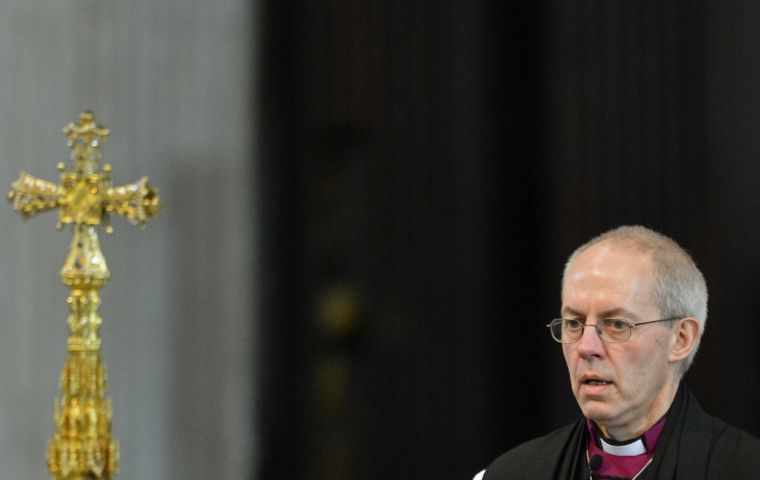Archbishop of Canterbury faces questions over links to Christian camp in abuse scandal
The Archbishop of Canterbury is being challenged over his links to a Christian camp at the heart of a police investigation regarding the abuse of young people.
Justin Welby previously said he helped at Iwerne Christian camps in the mid 1970s but moved to Paris in 1978 and after that had 'no contact' with the organisation and in particular John Smyth – the former chairman who groomed and beat more than 20 boys and young men – during the time the abuse allegedly took place.

But new documents show Welby gave a talk at one summer camp in 1979, also attended by Smyth.
He told Channel 4 News with dozens of talks across different camps throughout the summer, it was 'not an unusual occurrence' for people to return to speak.
'A talk on reading the Bible, which I did as a one-off in 1979, does not make anyone a member of an "inner circle",' he insisted.
But the papers shown to the TV channel challenge Welby's previous account that he had no contact with the camp at the time of the abuse. Another document shows Welby's address in Paris, suggesting he may have been in regular contact with the camp.
Welby did not deny the truth of the documents but said: 'My details in the address book were of my office at Elf Aquitaine, a very large French oil company, not my personal home address. Iwerne circulated newsletters to me as they did to a broad range of people and organisations.'
One former victim said they 'seem to throw paraffin on to this fire of suggestion about a cover up'.
Mark Stibbe, one of Smyth's alleged victims, said: 'It's clear to me from listening to the archbishop's comments . . . that he was saying he had no connection with Iwerne Minster between 1978 and 1983 because he was in Paris at that time.
'He has sought publicly to distance himself from all things Iwerne in that five-year time frame. But this document tells – if it's true, if it reflects reality – a very different story.'
He added: 'We have lived, recently particularly, and in some cases for many years, with the impression that people knew. Senior people in the Church of England knew that John Smyth had done what he did.
'And yet these people had the opportunity to go to the police, to do the responsible and the right thing. But they never did that. If they had done that it would have saved a lot of suffering, but they chose not to.
'So the reason why these documents are so provocative for us is because they seem to throw paraffin on to this fire of suggestion about a cover up.'











